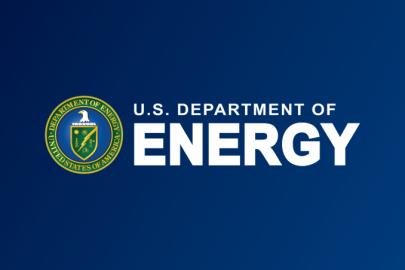
$3.1 billion from the Department of Energy (DOE) and the bipartisan infrastructure law will go to make more batteries and components in America, bolster domestic supply chains, create good-paying jobs, and help lower costs for families.
The infrastructure investments will support the creation of new, retrofitted, and expanded commercial facilities as well as manufacturing demonstrations and battery recycling.
A separate $60 million in funding will support second-life applications for used batteries that have powered EVs and new processes for recycling materials back into the battery supply chain.
Both funding opportunities are key components of the Administration's whole-of-government supply chain strategy to strengthen America's energy independence and reduce our reliance on competing nations. The funding will also support the President's goal to have electric vehicles make up half of all vehicle sales in America by 2030.
"Positioning the United States front and center in meeting the growing demand for advanced batteries is how we boost our competitiveness and electrify our transportation system," said U.S. Secretary of Energy Jennifer M. Granholm. "President Biden's historic investment in battery production and recycling will give our domestic supply chain the jolt it needs to become more secure and less reliant on other nations — strengthening our clean-energy economy, creating good-paying jobs, and decarbonizing the transportation sector."
With the global lithium-ion battery market expected to grow rapidly over the next decade, the DOE is working with the industry to prepare the United States for increased market demand.
As of March 2022, more than 2.5 million plug-in electric vehicles have been sold in America. Battery costs have fallen more than 90%, and since 2008, energy density and performance have increased rapidly, paving the way for an accelerated transition to zero-emission vehicles.
Responsible and sustainable domestic sourcing of the critical materials used to make lithium-ion batteries — such as lithium, cobalt, nickel, and graphite — will help avoid or mitigate supply chain disruptions. It will also accelerate battery production in America to meet demand and support the adoption of electric vehicles.
"The future of mobility is electric – and this support could help to ensure Michigan remains on the forefront of innovation by shoring up our supply chains for advanced battery technologies necessary to deploy the next all-electric fleet," said U.S. Senator Gary Peters (MI).
The "Battery Materials Processing and Battery Manufacturing" and "Electric Drive Vehicle Battery Recycling and Second Life Applications" funding opportunities are aligned with the National Blueprint for Lithium Batteries, authored by the Federal Consortium for Advanced Batteries, and led by DOE and the departments of Defense, Commerce, and State. The blueprint details a path to bolstering the domestic battery supply by equitably creating a robust and diverse battery workforce by 2030.
This plan aligns with President Biden's Justice40 initiative, establishing a goal that 40% of the benefits of federal investments in climate and clean energy flow to disadvantaged communities.
Applicants for new funding opportunities will be prompted to consider how project benefits can flow to relevant disadvantaged communities.
Strengthening America's Supply Chains
In response to President Biden's Executive Order on America's Supply Chains, the DOE issued a 100-day review of the large-capacity battery supply chain. The review recommended establishing domestic production and processing capabilities for critical materials to support a fully domestic end-to-end battery supply chain. It also advocated for investments in battery recycling and the circular economy to increase domestic supply and reduce the future need for new extraction and raw materials.
The bipartisan infrastructure law directs more than $7 billion to strengthen the U.S. battery supply chain, including producing and recycling critical minerals without new extraction or mining and sourcing materials for domestic manufacturing.
The funding opportunities are the first to be released as a collaboration between the DOE's Office of Energy Efficiency and Renewable Energy and the new Office of Manufacturing and Supply Chains. The DOE's organizational realignment will ensure that the department has the structure needed to effectively implement the clean energy investments in the Bipartisan Infrastructure Law and the Energy Act of 2020.
The bipartisan infrastructure law also includes $7.5 billion for electric vehicle chargers, $5 billion for electric transit buses, and $5 billion for clean and electric school buses.
To learn more about these opportunities, visit EERE Exchange.